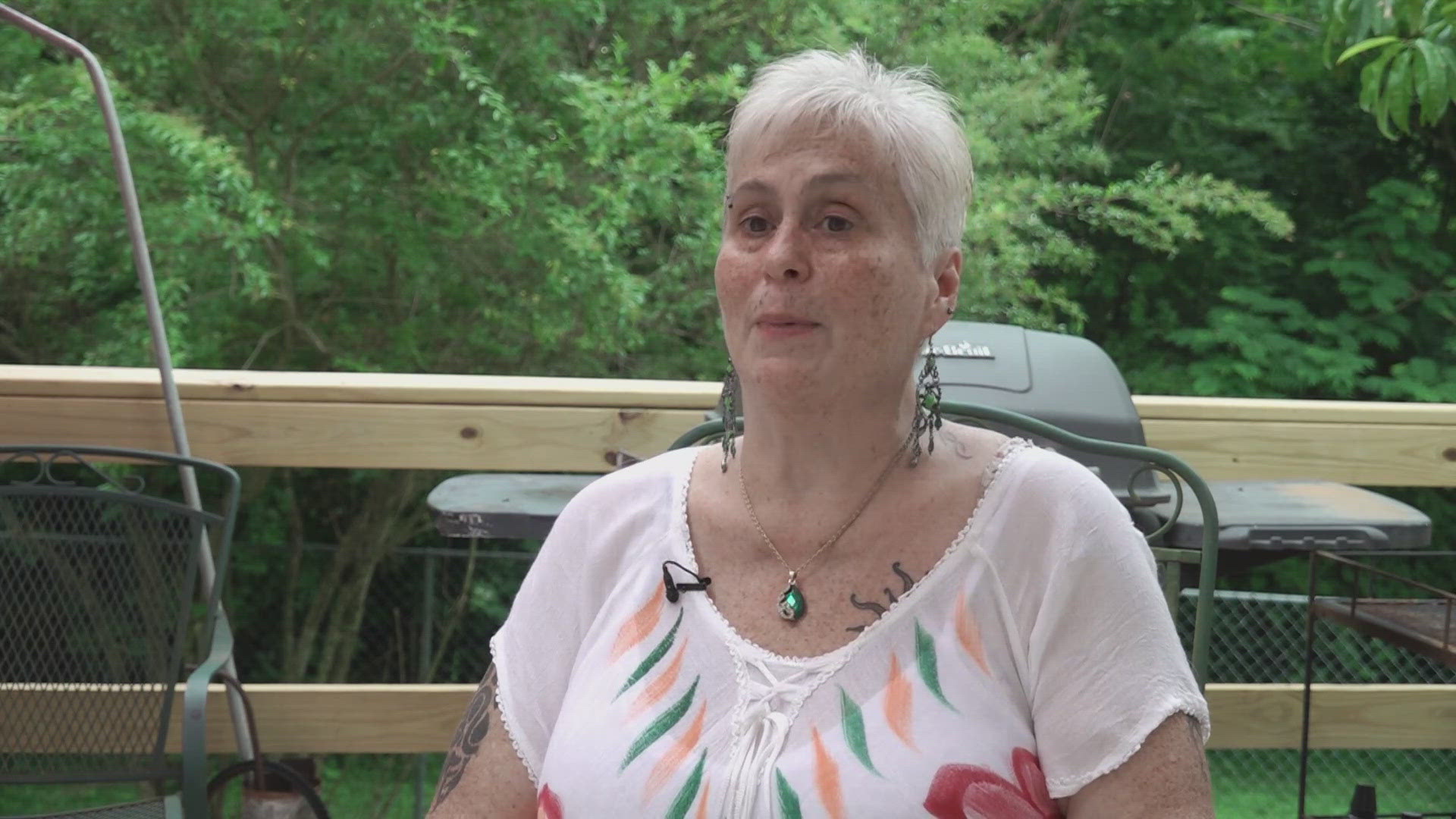KNOXVILLE, Tenn. — Cheryl Sutton was employed as a social worker in 2018 when she began collecting resources in a red binder on her desk.
“Anybody can find something that could be useful in the group,” Sutton said, flipping through the pages. “It's a resource hub.”
From HIV to pregnancy to LGBTQ+ resources, Sutton’s red book has it all — growing throughout the years.
“It's kind of like my therapy, my respite. I've had a lot of trauma in my life, so it kind of gives me something to focus on, gives me something to do,” Sutton said. “A lot of my pain is what keeps me motivated to keep doing what I'm doing. For one thing, I don't want to just sit in there and wallow in my sorrow and, you know, crawl up in a ball and not do anything. So it's, this is my purpose now.”
Sutton’s son and his wife overdosed and were revived with Narcan, leaving Sutton with custody of her grandchildren and in need of help from local organizations.
“So if I need it, I know I'm not the only one. There's others,” Sutton said. “Because I needed it, I'm like, ‘Well, I know somebody else needs it. I need to share that information.'”
It started in the binder and eventually transformed into a Facebook group. Sutton said she works for hours every day, connecting people with resources in the group. It has grown to nearly 8,000 members. Now, she’s working toward a 501(c)(3) registration.
“It's a very weird and quirky area of the law with lots of gray areas,” said Eric Amarente, a University of Tennessee College of Law Associate Professor. “Nonprofit law is my passion. I really love the practice, and I hope to kind of infect my students with that same type of enthusiasm.”
Amarante is a co-director of the Transactional Law Clinic, which provides free legal services to artists, entrepreneurs and nonprofits like Sutton.
“When you're starting a nonprofit, you're dealing with the same law that applies to giant mega-charities like the Ford Foundation or the Gates Foundation,” Amarante said. “It's the same law, the same words are supposed to apply to you that apply to these multi-million dollar charities, except you're all alone and all you really have is a passion. And, you want to take that passion and make it happen, and you have all these laws in the way. And so, I love being able to come in and just bridge that and say, ‘Okay, focus on your passion. We'll focus on the law, and we'll get you to a place where you can do what you want to do, following the laws, following all the regulations that are out there, and hopefully succeed.'”
For Sutton, the clinic’s help was instrumental.
“I don't understand it at all. I don't understand bylaws and charters and the legalities,” Sutton said. “And even just submitting the forms to the IRS for the 501(c)(3), it was legal jargon, mumbo jumbo stuff.”
It’s why Sutton turned to Amarante and his students, who have worked with her for nearly a year.
“For me personally, it wouldn't be happening if it wasn't for a free clinic, because I don't have any money,” Sutton said. “It's just me.”
Sutton said she’s hopeful this new status will help the Red Book of Resources continue to grow.
“One of the [reasons for this status] was, I know if I got 501(c)(3), I could probably get more donations. Because then, I'd be able to give people charitable receipts,” Sutton said. “I can grow, and I can even seek out businesses or larger donations to do, be able to do more.”
Sutton said she hopes that growth focuses on her outreach program, where she provides backpacks filled with necessities to people experiencing homelessness. Currently, Sutton says she operates entirely out of her car, driving around with packs filled with non-perishable food, toothpaste, Narcan and other goods. One day, however, Sutton hopes to secure a permanent space to provide more backpacks to people in the community.
Professor Amarante said between 40 and 60 students work in the clinic each semester, serving roughly 100 clients in the fall and spring completely for free.
“The payment is really the students learning,” Amarante said about the clinic. “So the students have an opportunity to get something to really dig their teeth into, to really run down a legal question. And that is invaluable. That's the equivalent of our textbook.”
Anyone interested in receiving help from the Transactional Law Clinic can call 865-974-2331 or email legalclinic@utk.edu.
To get in touch with the Knox County Red Book of Resources, Sutton said people can join the Facebook group or visit the Amazon Wishlist.

